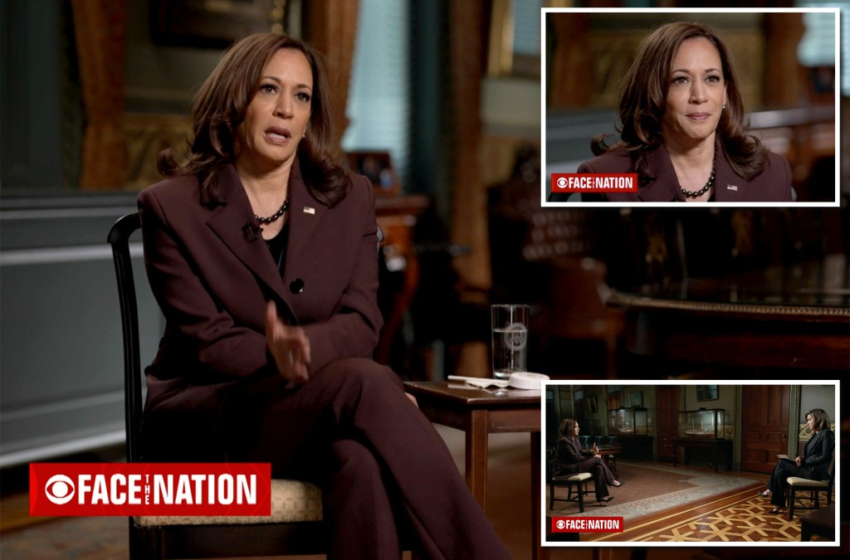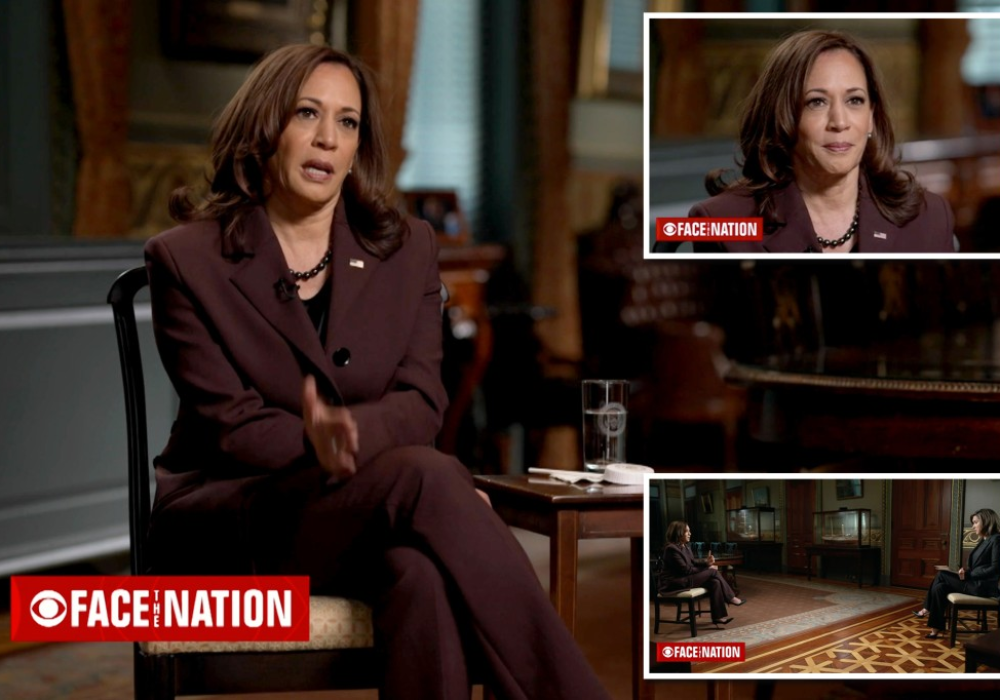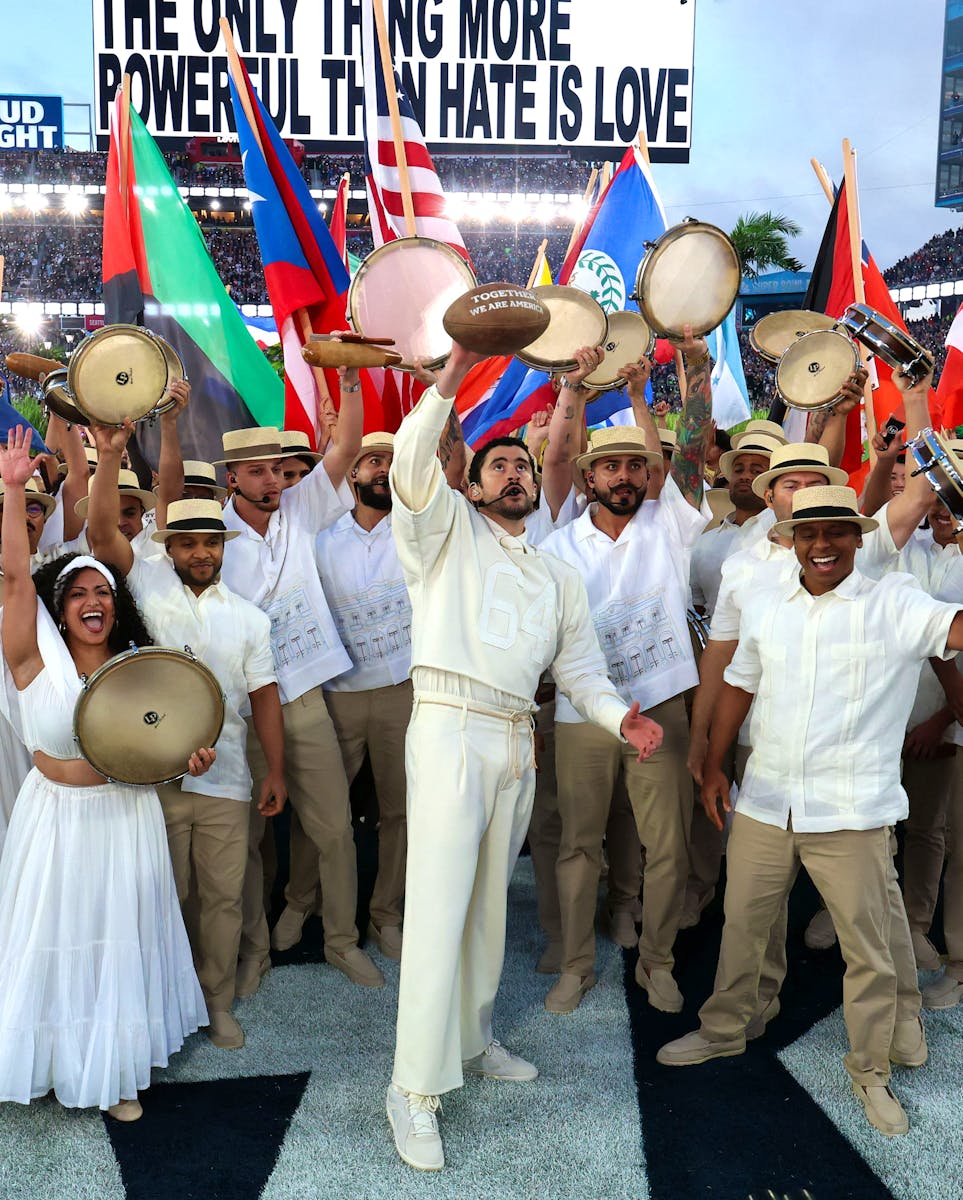Vice President Kamala Harris appeared to misspeak during an interview aired Sunday when she answered “democracy” when asked what’s the biggest national security challenge facing the US.
During the interview on CBS News’ “Face the Nation,” host Margaret Brennan asked her about the one national security threat that keeps her up at night worrying.
“Frankly, one of them is our democracy. There is, I think, no question in the minds of people who are foreign policy experts that the year 2021 is not the year 2000,” she said.
“And we are embarking on a new era where the threats to our nation take many forms. Including the threat of autocracies taking over and having outsized influence around the world,” Harris said.
Later in the interview, she clarified her earlier comment, saying there is a need to “fight for the integrity of our democracy.”

In the wide-ranging interview, Harris also talked about the need for the Senate to pass voting rights legislation, but wouldn’t say whether the filibuster should be bypassed, and criticism directed at her.
Harris also refused to take any responsibility for the debacle surrounding the US military pullout from Afghanistan in August, instead blaming the Trump administration for inking an agreement with the Taliban.
She said she “fully supported” President Biden’s decision to end the nation’s 20-year war with Afghanistan by removing US troops.

“I think it’s really important to remember that the previous administration negotiated a deal with the Taliban, did not invite the Afghan government to be at the table, and negotiated a deal that required and and promised as part of an agreement that we would pull out by the end of May,” Harris said on CBS.
“So we were saddled with that responsibility based on an agreement between the United States and the Taliban,” she continued.
Harris claimed the Biden administration had to abide by the deal worked out by former President Donald Trump or risk a continuation of America’s longest war.
“We made the decision that if we were to break the agreement, it would have been a whole other situation right now,” the vice president said.
“I strongly believe that had we broken that agreement, we would be talking about the war in Afghanistan and American troops in Afghanistan, and we’re not talking about that. I don’t regret that,” she said.

Biden has also pointed to the agreement his predecessor made in February 2020 with the Taliban for his reason to plow through with his decision to remove US troops by the end of August.
He said he “inherited” the deal Trump negotiated with the Taliban to depart by May 1, 2021, because after that date there would have been no cease-fire to protect US forces, leaving the option of withdrawing the forces or end up escalating the fight with the militant group.
Harris also said the administration will do “whatever is necessary” to push for the 50-50 divided Senate to take up voting rights legislation but wouldn’t commit to bypassing the 60-vote filibuster threshold to do so.
Asked if that means using the filibuster, Harris said: “I’m not saying that.”
“What I’m saying is that we are going to urge the United States Congress, and we have been, to examine the tools they have available to do what is necessary to fight for and retain the integrity of our voting system in America,” said Harris, who served as a US senator from California before become vice president.
Creating a carve out on the filibuster would allow Senate Democrats to pass legislation with a simple majority, but moderate Democrats Joe Manchin of West Virginia and Kyrsten Sinema of Arizona have opposed using the maneuver.
Democrats contend that Republican-led states are passing bills that will restrict voting rights for minorities as Trump continues to claim that the 2020 presidential election was rigged.

Harris also responded to reports that the Biden White House is setting her up to fail amid a possible rivalry with Transportation Secretary Pete Buttigieg, who, like Harris, may run again for president in 2024 or 2028.
She was asked if the scrutiny rises out of the fact that she is the first black and the first woman to serve as vice president.
“I’ll leave that for others to deal with. I have a job to do. And I’m going to get that job done,” she responded, noting that the criticism may be prompted by her raising issues about maternal health, postpartum care and Medicaid expansion.
“I’m vice president United States. Anything that I handle is because it’s a tough issue, and it couldn’t be handled at some other level. And there are a lot of big tough issues that need to be addressed. And it has actually been part of my lifelong career to deal with tough issues, and this is no different,” she said.












